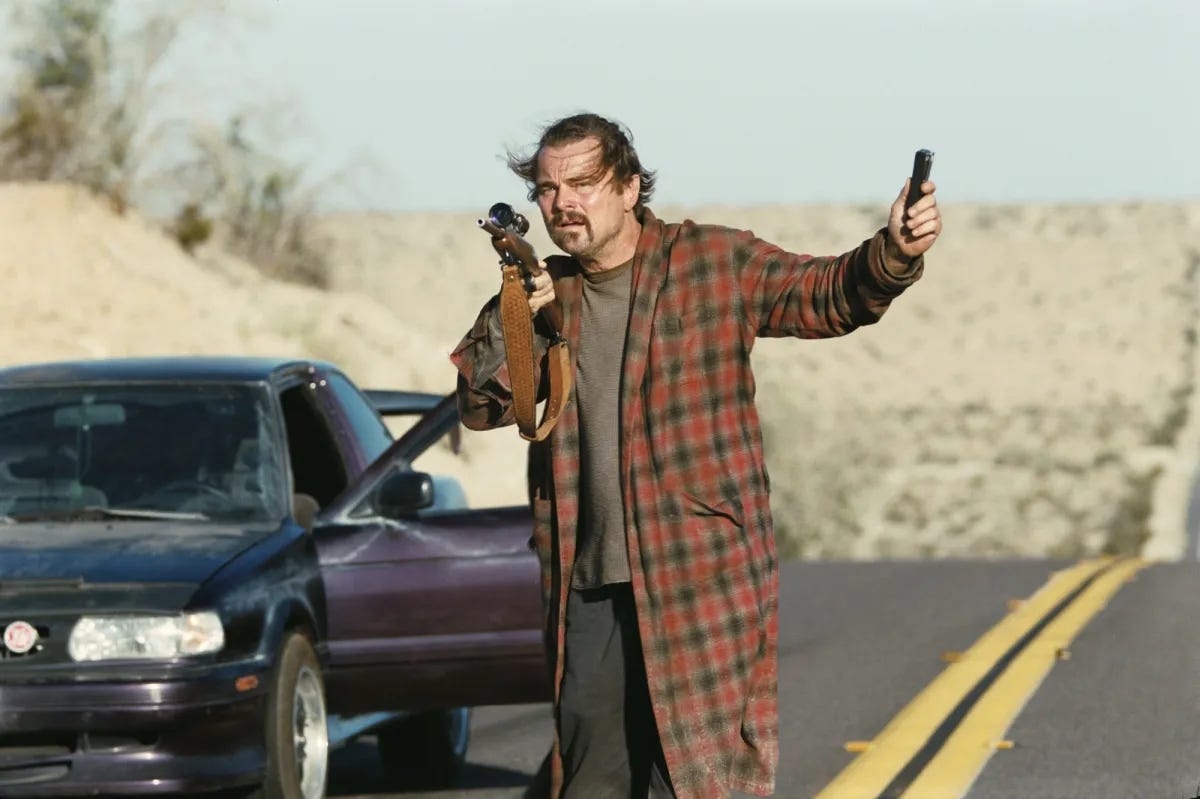Paul Thomas Anderson’s “One Battle After Another” is at its core a small story about a father and daughter set in an epic, political milieu. These two modes are in constant conversation with each other, and the film’s viewpoint boils down to the same theme for both. It’s spoken effectively in the title: these are never-ending endeavors that require constant effort. From now on, it’s one battle after another.
To me (a leftist dad), the political struggle we’re shown is a mirror for parenthood. The opening act focuses on the French 75 undertaking, and as far as we see, succeeding in a string of revolutionary attacks. But even before it all collapses around them, we never actually get any sense that they are successfully pushing their ideology forward, and when the film jumps to 16 years later, it seems like the same people are in power, continuing to oppress in the same ways.
When Pat/“Bob” is forced to transition from full-time revolutionary to a parent, the story picks up at the moment his radical history comes crashing back into his new life as a dad. They are tied together, and through his efforts to save Willa both are depicted as continual struggles that often show no visible signs of progress and no tangible rewards. Obviously, the theme is then informed by the reveal that Bob isn’t Willa’s biological father, but the absurd and monstrous Lockjaw is. I think this only helps further explore these relationships and what fatherhood actually is. Parenting is about the focus and effort put into it, and has less to do with literal genetics.
The final climactic set piece is a thrilling, three-way car chase through the desert involving Willa, a Lacoste-clad white supremacist terminator, and Bob. The distinct visual language as they race across the landscape is the constant up and down, hill after hill. Such a potent way to depict the feeling, the ongoing effort required, the continuing ups and downs. Especially from Bob’s perspective, desperately trying to keep up and feeling like he barely has his own shit together, let alone having it together enough to be productive as a dad or a radical. Maybe I’m telling on myself a little, but it feels like such an effective and expressionistic way to capture what being a dad feels like to me. Bob, for sure, does not seem like a good dad in the film, but he wishes he was, and he is putting what little energy and focus he has left into it.
Even the ambiguously hopeful note that the film ends on — the younger generation will continue the effort to improve the world through direct action and protest — doesn’t give any indication that they will be more successful than their parents were. Just that they will keep trying. I hate to pull the trick of a high schooler who didn’t actually read the book, but dang the title here really works beautifully.
Whether it’s parenthood or the revolutionary fight against oppression, both are presented as paths that require total commitment and often don’t give a clear indication that you’re being successful. If anything, both come with the feeling that you’re not doing enough. But you do them because it’s in your bones to do it. It’s part of who you are to the point that, though it requires effort, it doesn’t require a choice.



Darn, I should not have started reading this before seeing it.